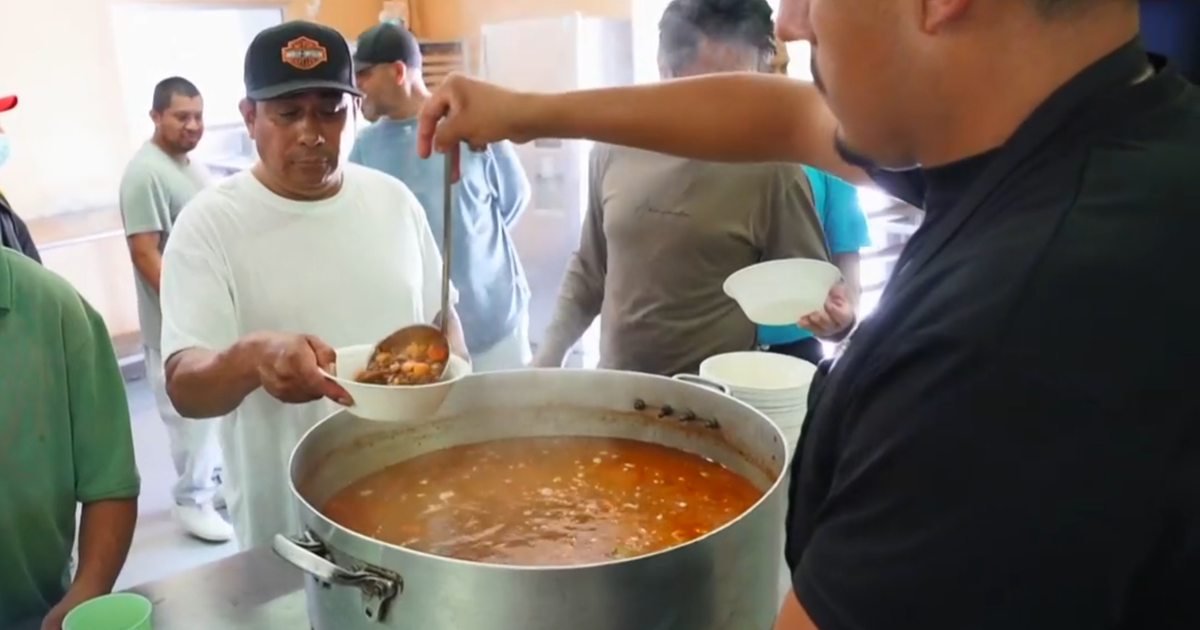In the buzzing city of Tijuana, just a short three miles across the U.S.-Mexico border from the gleaming San Diego skyline, a fresh chapter unfolds for many. It’s here that deportees, like Juan Carlos, find themselves grappling with the reality of starting anew in a place that feels distinctly foreign, despite its geographical closeness to their former homes.
Juan Carlos’ story is not isolated. His life in the United States spanned nearly two decades, predominantly in Los Angeles, where he built a life centered around his job in the construction industry. This life came to an abrupt end one ordinary day—June 24—when what started as a routine trip to Home Depot with his construction crew ended with him being surrounded by federal immigration agents.
“I knew as soon as I saw them, I had to run,” he recalls, though his attempt to escape was futile and led to his arrest—an event caught on camera by a bystander. The video, later circulated online, shows the tense moments of his capture. Juan Carlos spent the following two weeks in U.S. Immigration and Customs Enforcement (ICE) detention, a period during which he was faced with a life-altering decision: to fight a likely losing battle or sign the paperwork that would see him deported. Opting for the latter, he found himself back in Mexico, a place that had transformed drastically since he last called it home.
Los Angeles, as Juan Carlos shared with CBS News, had offered him myriad opportunities and a sense of belonging. “It gave me so much more than just a place to stay. I felt like I was home.” Yet, his sentiment did not alter his reality—deported and disoriented in what should have been a familiar land.
The young woman who filmed his deportation, Audree, told reporters that the intensity of the moment was overwhelming, yet she hoped that sharing the video might somehow assist his family. “What struck me the most was the risk they took for a day’s wages,” she said, reflecting on the desperateness of the situation.
CBS News has explored the stories of several undocumented immigrants who, like Juan Carlos, ended up being deported and feeling alienated in a land they theoretically should belong to. In January, the Mexican government responded to the increasing number of deportees by repurposing facilities such as Flamingo’s—an erstwhile event space—into shelters designed to aid these individuals in their unexpected transition.
Priscila Rivas, a worker at a nonprofit stationed at Flamingo’s, shared that despite the space’s large capacity of 3,000, they seldom see more than 100 occupants at a time. “It’s essentially a processing center,” she noted, explaining the assistance deportees receive—from obtaining identification papers like birth certificates to more practical advice on securing employment and housing, and reconnecting with family members.
However, Rivas also pointed out that not all deportees are fortunate enough to end up in places like Flamingo’s where resources are available. “We are witnessing deportations to remote parts of Mexico, like Tapachula along the southern border, where the infrastructure to support these individuals simply does not exist,” she lamented.
The aggressive tactics of ICE agents have gained momentum, yet the massive wave of deportations promised during President Trump’s administration has not entirely come to fruition. According to CBS News, ICE is predicted to execute over 300,000 removals this year—a record since the Obama era, though still shy of the one million annual target previously set by the Trump administration. It was also reported that out of the 100,000 deportations from January 1 to June 24, 70,583 were of convicted criminals, primarily for minor transgressions like traffic violations.
Among the deported was Uliser, a Cuban national who, after serving 19 years in a U.S. prison for a grave crime committed at 15, opted for voluntary departure to Mexico—a decision driven by fear of being sent to a country less accommodating than Cuba. “The risk of being sent to places like Salvador or South Sudan was too high. Mexico seemed like a better option for starting over,” he shared. Now, he works as a sales development representative and aspires to aid others facing similar plights in adjusting to their new lives in Mexico.
As deportees like Juan Carlos and Uliser navigate their redefined existences, they hold onto hope, striving to rebuild despite the profound challenges. Their stories shed light on broader immigration issues—stories of loss, adaptation, and resilience that resonate across borders, underscoring the complex human dimensions of immigration policies and enforcement.









